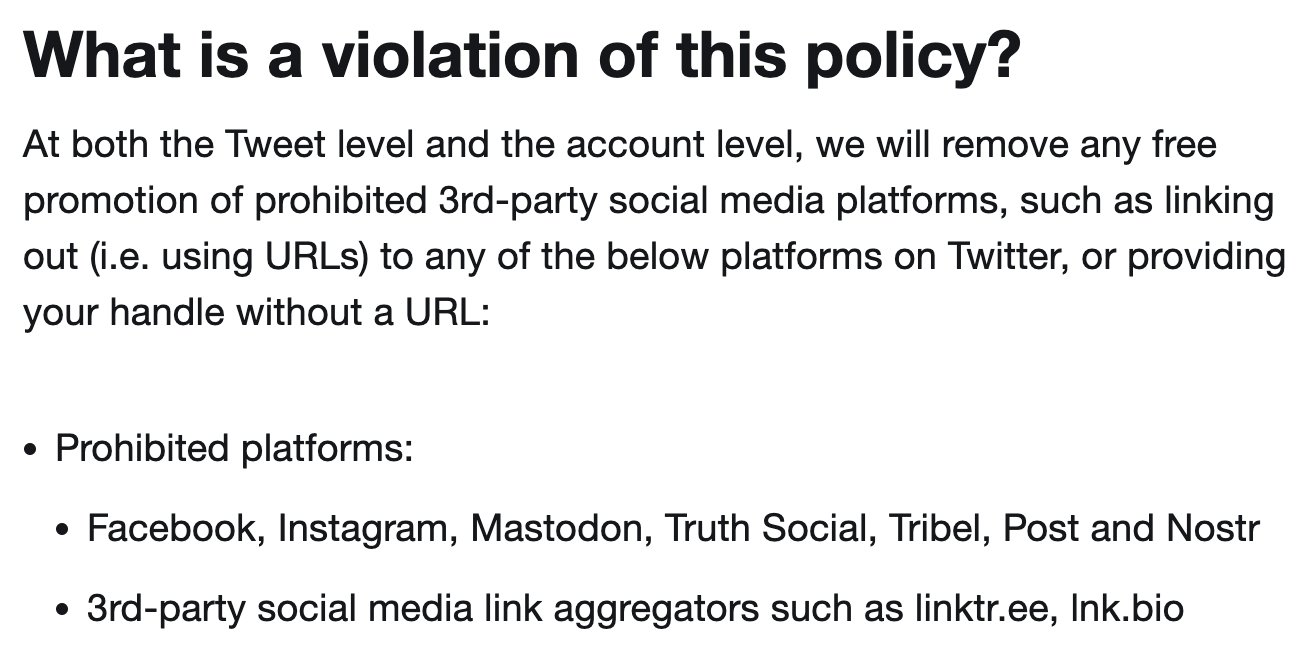Melbourne-based link-in-bio startup Linktree has been caught up in the latest changes to Twitter under its quixotic new owner, Elon Musk.
Linktree boss Alex Zaccaria, ironically, took to Twitter to argue Musk’s latest diktat was “anti-creator and antithetical” to the foundations of the Internet and Twitter, pointing out that Linktree drives double the traffic to Twitter than flows the other way.
It’s been a hectic weekend for Musk, who banned several prominent journalists from Twitter, declaring “doxxing” a major sin, before revealing his own “assassination coordinates” in several posts from the World Cup final in Qatar – where he was photographed standing next to Donald Trump’s son-in-law, Jared Kushner.
At World Cup right now pic.twitter.com/CG7zMMxSjE
— Elon Musk (@elonmusk) December 18, 2022
His next fatwah was on users flagging their move to rival platform Mastodon, changing the rules around Twitter links to ban “any free promotion of prohibited 3rd-party social media platforms”.
The ban includes Linktree as well as Facebook, Instagram, and Trump-backed Truth Social.
We recognize that many of our users are active on other social media platforms. However, we will no longer allow free promotion of certain social media platforms on Twitter.
— Twitter Support (@TwitterSupport) December 18, 2022

Twitter’s new link policy
Users started getting suspended for link posts, most notably, Y Combinator founder and VC investor Paul Graham, before his account was subsequently reinstated a few hours later.
The offending tweet, where Graham, a strong backer of Musk, said he’s fed up and is heading to Mastodon, remains up, following his reinstatement.
This is the last straw. I give up. You can find a link to my new Mastodon profile on my site.https://t.co/bbmZ4yvAJH
— Paul Graham (@paulg) December 18, 2022
The impact on Linktree is unknown, but two hours after Startup Daily asked for comment on the ban, cofounder and CEO Alex Zaccaria took to Twitter posting his own thread on the issues saying the “proposed” policy – like most Musk edicts, it’s simply enacted rather than proposed – was “anti-creator and antithetical”.
“The proposed update to Twitter’s policy, banning creators from linking to other platforms like Linktree, is at its very core anti-creator and antithetical to the open, free Internet on which Twitter was founded,” he said.
“This move, banning platforms and limiting interoperability, has real life consequences for those who rely on Twitter to earn a living: its users.”
Zaccaria said the ability to cross market audiences and platforms is essential to users.
“Forcing creators to be locked in a walled garden, destroys a creator’s chances for growth, monetization and interoperability. Doing this would hurt creators, not other large platforms. In fact, Linktree users drive almost twice as much traffic back to Twitter than Twitter drives to Linktree. This policy would cut that flow and avenue of discovery, again harming the user.”
Earlier this year, before he paid US$44 billion for Twitter, Musk held similar views, as many now pointed out, when he said: “The acid test fr any two competing socioeconomic system is which side needs to build a wall to keep people from escaping? That’s the bad one!”
The acid test for any two competing socioeconomic systems is which side needs to build a wall to keep people from escaping? That’s the bad one!
— Elon Musk (@elonmusk) June 6, 2022
Much like Trump, Musk has an earlier tweet for every occasion to contradict what he’s now saying.
While the impact on Linktree has yet to play out, it’s unlikely to hit its bottom line hard. And like most of the policy chaos created by Musk since he took charge, there’ll probably be an acknowledgement from the “free speech absolutist” that his latest ban is overreach, with Linktree forgiven any perceived sins.
In March this year Linktree raised $152 million (US$110m) in self-described a Series B extension on a $1.8 billion valuation, having raised initial $59 million Series B in 2021.
Linktree has been profitable since launch in 2016 and had bootstrapped until 2020, having first raised capital in October of that year with a $15 million Series A.
Credit: Source link


Comments are closed.